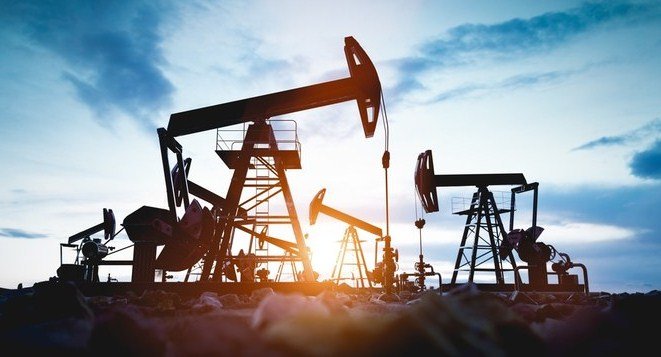Brent crude reaches $95 per barrel amid supply concerns
The price of oil has risen to its highest level since November 2022, as worries about a supply deficit persist. Brent crude, the international benchmark, climbed over $95 per barrel on Tuesday morning, up 1.6% from the previous day.
The surge in oil prices was driven by the decision of Saudi Arabia and Russia, the world’s two largest oil producers, to extend their voluntary output cuts until the end of this year. The two countries agreed to maintain their current production levels of 9.7 million barrels per day, which is about 10% lower than their pre-pandemic levels.
The move was aimed at supporting the oil market, which has been hit by weak demand and excess supply due to the coronavirus crisis. However, some analysts have warned that the prolonged cuts could create a supply gap in the future, especially if demand recovers faster than expected.
“The market is clearly pricing in a risk premium for a potential supply crunch next year,” said Giovanni Staunovo, an oil analyst at UBS. “The demand outlook is improving as vaccination rates increase and mobility restrictions ease, but supply is not keeping up.”
Eurozone inflation drops to 5.2% in August
Meanwhile, inflation in the eurozone fell slightly in August, but remained well above the European Central Bank’s target of 2%. Consumer prices in the 19-country bloc rose by 5.2% year-on-year in August, down from 5.3% in July, according to Eurostat.
The decline was mainly due to lower energy prices, which fell by 3.3% year-on-year in August, compared with a 1.3% drop in July. Energy prices have been dragged down by the slump in oil demand and the collapse of oil prices last year.
However, core inflation, which excludes volatile items such as energy and food, remained elevated at 5.5%, unchanged from July. This suggests that underlying price pressures are still strong, driven by rising costs of raw materials, labor shortages and supply chain disruptions.
The persistently high inflation rate has raised expectations that the ECB will start to taper its massive stimulus program soon. The central bank is currently buying €80 billion worth of bonds per month under its pandemic emergency purchase program (PEPP), which is due to run until March 2024.
However, some ECB policymakers have argued that the inflation spike is temporary and will fade once the pandemic effects subside. They have also warned that tightening monetary policy too soon could derail the economic recovery and worsen the debt burden of some eurozone countries.
OECD warns of uneven and uncertain global recovery
The latest developments in the oil market and the eurozone come amid a gloomy outlook for the global economy from the Organisation for Economic Co-operation and Development (OECD). The Paris-based think tank said on Tuesday that the recovery from the pandemic was losing momentum and becoming more uneven across countries and sectors.
The OECD lowered its global growth forecast for this year to 5.7%, down from 5.8% in May. It also cut its projection for next year to 4.5%, down from 4.4%. It blamed the downward revisions on the spread of the Delta variant of Covid-19, which has led to new lockdowns and travel restrictions in some regions.
The OECD also highlighted the widening gap between advanced and emerging economies, as well as between sectors that have benefited from the pandemic and those that have suffered. It said that while some countries such as the US and China have seen strong growth and rising incomes, others such as India and South Africa have faced deeper recessions and rising poverty.
Similarly, it said that while some sectors such as technology and e-commerce have thrived during the pandemic, others such as tourism and hospitality have struggled to survive. It urged governments to provide more targeted support to the most vulnerable groups and sectors, as well as to accelerate vaccination campaigns and improve international coordination.

